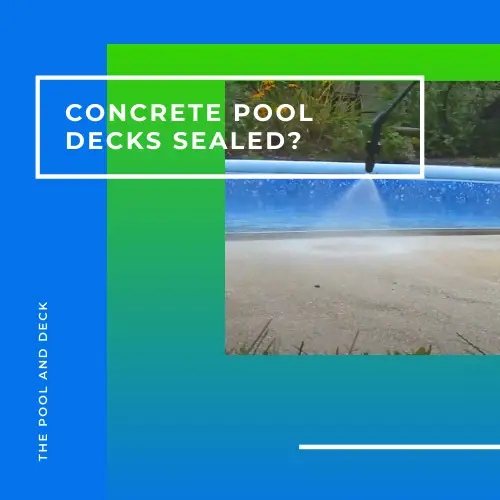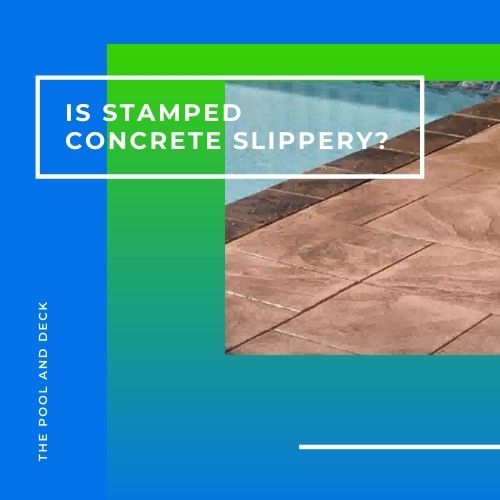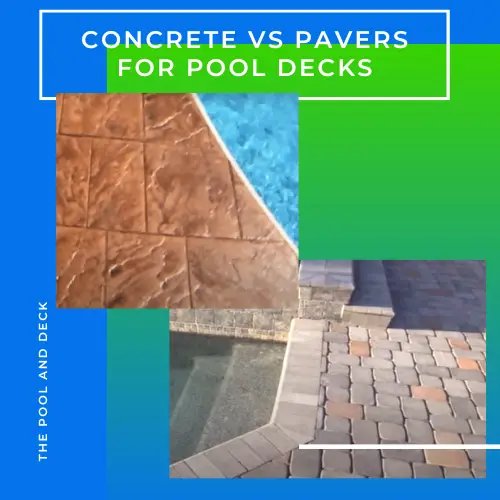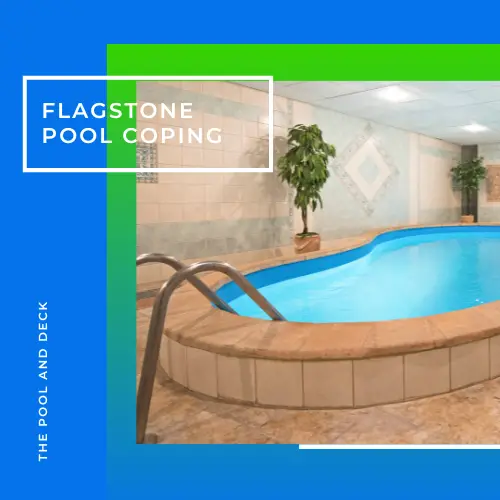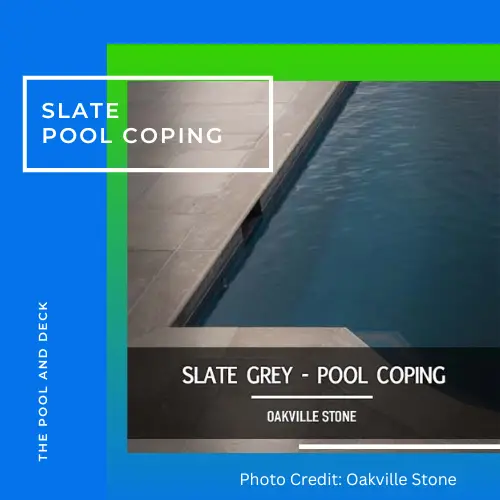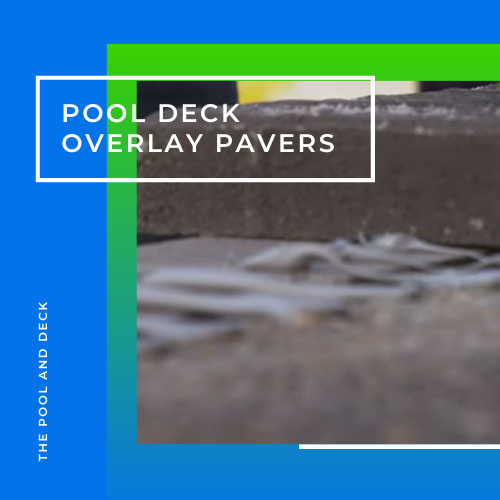Travertine vs Concrete Pavers Pool Deck: What is Better?
Table of Contents
Travertine vs Concrete Pavers: Which is Better for Your Pool Deck?
The choice of Travertine vs Concrete Pavers Pool Deck depends on your budget and the looks you are aiming for. A concrete paver deck can look quite nice but will not spell class. Travertine pavers, on the other hand, have a luxurious look but will cost you at least twice as much.
In addition to looks and cost there are many functional aspects that you must consider in your decision making. When it comes to travertine vs concrete pavers pool deck, each material has its advantages and disadvantages.
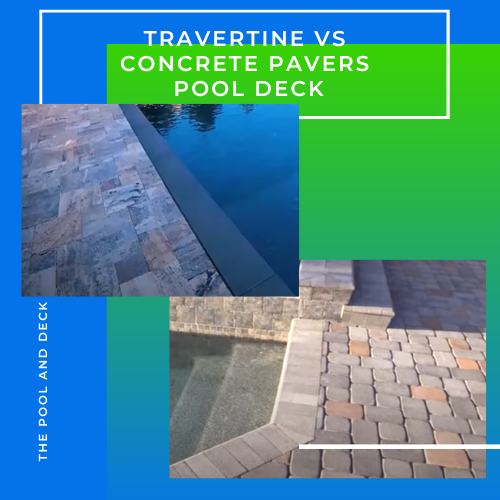
Travertine vs Concrete Pavers Pool Deck: At a Glance
At a glance the comparison is as under:
| Property | Travertine Pavers | Concrete Pavers |
| Durability | Has lower strength as compared to concrete and may chip or crack under heavy load. High UV and weather resistance. Not affected by freeze thaw cycles. | High compressive strength. Can handle heavy loads and as such preferred for driveways. Lower UV and weather resistance. Should be sealed to prevent damage. |
| Slip Resistance | Naturally slip resistant due to its ability to readily absorb water. | Smooth concrete is slippery when wet. Rough textures will improve slip resistance. |
| Staying Cool | Travertine stays 20 – 30% cooler during summer. | Concrete can get unbearably hot in summer. |
| Looks | Elegant, earthy looks that can increase home value. | Artificial and functional beauty from colors & texture. |
| Sealer Requirement | Must be sealed initially and resealed every year. | Must be sealed initially but will need to be resealed every 2-3 years. |
| Ease of Installation | Difficult to install. Usually requires professional skills. | Easy to install. Can be a simple DIY project. |
| Cost | Material cost is 2X – 5X of concrete pavers. Installation is very expensive too! | Very affordable. You can save installation costs by doing it yourself. |
Travertine vs Concrete Pavers Pool Deck: Comparison by Features
Here is a comparison of Travertine vs Concrete Pavers Pool Deck on important features:
Durability
Travertine is quite durable as it is reasonably hard, and has excellent UV resistance. However, it is not so hard that it will not chip or crack under heavy load. You should certainly not be dragging furniture or grills over a travertine paver pool deck.
Concrete is extremely durable. Concrete pavers have very high compressive strength and can withstand heavy loads. Unfortunately, concrete invariably develops hairline cracks during the curing process. Water permeation through these cracks can damage the pavers from within and shorten its life.
Concrete pavers have low UV and weather resistance. If not sealed, they will deteriorate in cold climates because of the freeze thaw cycle. The color may also fade over time due to the effects of sunlight, rain, sleet and snow.
Both travertine and concrete pavers must be sealed initially and resealed periodically to enhance their durability and longevity.
Slip Resistance
Travertine pavers have excellent slip resistance due to their natural porosity. They absorb water and reduce risk of slips due to “hydroplaning” between wet bare feet and the wet pavers on the pool deck.
The slip resistance of concrete pavers, largely depends on the texture on its surface. Though smooth concrete pavers have poor slip resistance, the slip resistance can be quite high for pavers with rough texture.
Specific Heat Capacity
The Specific Heat Capacity of travertine is the highest among popular natural stones and higher than concrete. Travertine pavers, therefore, will get the least hot under the midday sun.
The Specific Heat Capacity of concrete on the other hand, is low, even lower than granite. As such concrete pavers can get quite hot under the midday sun.
The specific heat capacity of some common paving materials is given in the infographic below:
Data Source: Engineering Tool Box
Concrete & Water Specific Heat Capacity is mentioned so that you can put the paving materials in perspective.
As you can see, Travertine is pretty high on the list. In other words, travertine, will get less hot under the sun compared to concrete.
Aesthetics
Travertine pavers offer an earthy, elegant look. Each paver has unique variations in color and pattern. However, the variations fall within a narrow spectrum.
Your pool deck with travertine pavers will look very natural and not a like a mis matched mosaic.
Concrete pavers are man made and not natural, so it is possible to imprint them with a range of textures and colors. They are versatile and customizable, so you can create the look you want.
Finally, concrete pavers will never be able to match the warm & organic look & feel of travertine pavers. Travertine pavers are certainly the better choice if you intention is to create an exclusive and cozy ambiance.
Sealer Requirement
Travertine is a fairly porous natural stone. Further, it has poor resistance to mild acids. Pool water is mildly acidic because of the use of chlorine to keep the water safe for swimming.
Travertine pavers need to be sealed to begin with. They must also be resealed periodically, typically once a year.
Use of the right sealer increases their durability, makes them stain & chemical resistant and enhances their beauty.
Concrete pavers also need to be sealed to begin with, and resealed periodically, typically every 2-3 years.
Concrete develops hairline cracks during the curing process. If the cracks are not sealed water can permeate into the concrete and damage it from within.
Penetrating sealer seeps into the concrete pores to protect from within. Topical sealer bonds and forms a film to protect from abrasion & weathering. Periodic sealing will prevent the concrete pavers from crumbling and add years to their lifespan.
Ease of Installation
Installation of travertine pavers requires a certain degree of skill and may be difficult for an homeowner with limited DIY experience.
Travertine pavers often come in sets that make up a pattern that need to be coordinated to get a consistent and beautiful pool deck. It may involve cutting and resizing the pavers.
You will need to use the services of a professional installer and this adds up to the already higher material cost
Concrete pavers are a lot easier to install on pool decks. They tend to be squares or rectangles. Even pavers in odd shapes are designed such that they fit quite snugly with each other. It is near impossible to go wrong!
Cost
The material cost of travertine pavers can range between $4 – $10 per square feet, depending on the travertine quality and your location. Installation costs can run between $10 – $20 per square feet.
A 300 square foot deck with travertine pavers will set you back anywhere between $4000 – $9000. The pool deck may turn out to be beyond your budget. However, you can bring down the costs substantially if you can lay the travertine pavers your self.
A concrete paver pool deck on the other hand is very affordable. The pavers themselves cost only around $2 per square feet and you can do the job yourself. You could get a decent looking 300 square foot concrete paver pool deck for $600 – $800.
Conclusion
When it comes to travertine vs concrete pavers for pool deck, travertine is superior due to its classic, natural looks, excellent slip resistance and ability to stay cool under the hot sun. Unfortunately it is significantly more expensive than concrete pavers, putting it out of reach for a budget conscious homeowner.
Thank you very much for reading the post. I do hope you found it informative and helpful.

